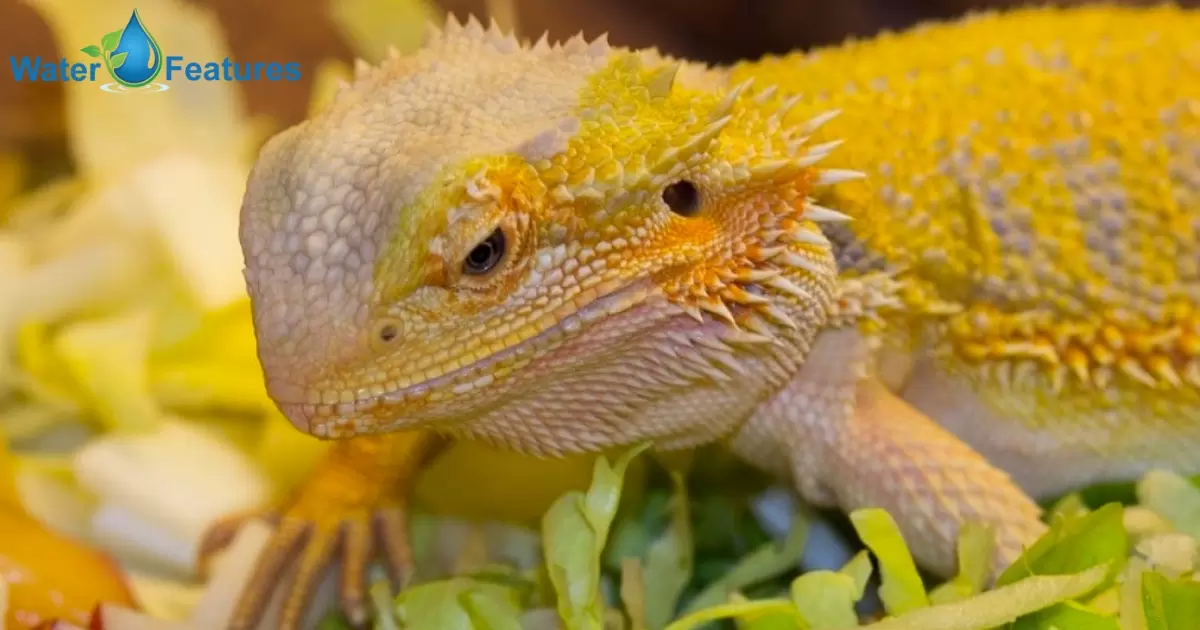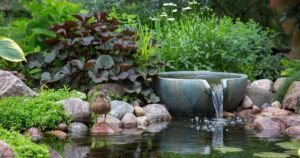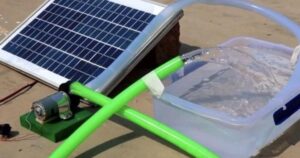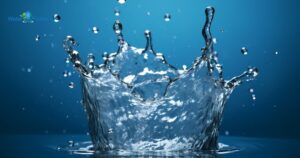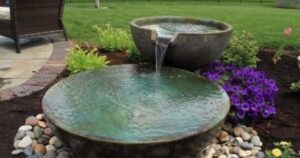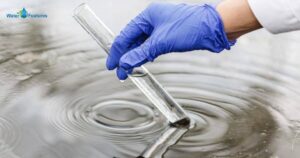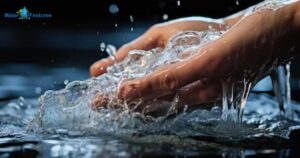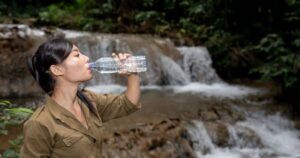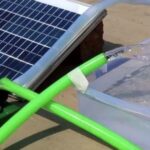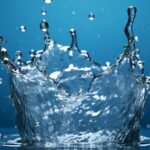Bearded dragons, with their enchanting appearance and endearing demeanor, have become a popular choice among reptile enthusiasts. These gentle and captivating creatures hail from the arid regions of Australia and have adapted remarkably to life as pets. While they have relatively straightforward dietary needs and are known for their voracious appetites, their hydration requirements are less understood by many new keepers.
One common question that arises is, Can bearded dragons drink tap water? In this article, we’ll delve into the intricate world of bearded dragon care and explore the safety and suitability of tap water as a source of hydration for these remarkable reptiles. Imagine your bearded dragon basking under its heat lamp, absorbing warmth and light, with its scaly body glistening. It’s a sight to behold,
Bearded dragons, like other reptiles, are known for their unique preferences and needs. The water they consume can play a significant role in their overall well-being. So, can you trust tap water to quench your bearded dragon’s thirst? Let’s embark on a journey through their world to find out. One of these responsibilities is providing them with an environment that closely mimics their natural habitat.
Understanding Bearded Dragon Hydration Needs
Before delving into the tap water question, it’s important to understand the hydration needs of bearded dragons. These reptiles originate from arid regions of Australia, which means they are adapted to conserve water. In the wild, they get most of their hydration from the foods they eat, such as insects, vegetables, and fruits.
They still require access to water for drinking and bathing. Bearded dragons use water not only for drinking but also for maintaining proper humidity levels in their enclosure and facilitating shedding. Insufficient hydration can lead to health issues, including dehydration, kidney problems, and difficulty shedding their skin.
Can Bearded Dragons Drink Tap Water?
The use of tap water for bearded dragons is a topic of debate among reptile enthusiasts and experts. Here are the key considerations when it comes to using tap water for your pet.
Water Quality
One of the primary concerns with tap water is its quality. The quality of tap water can vary significantly depending on your location. Some tap water is treated with chemicals such as chlorine and chloramine, which are added to kill bacteria and other microorganisms. These chemicals, while safe for humans to consume, can be harmful to reptiles like bearded dragons.
Chlorine
Chlorine is often used to disinfect tap water. While it is safe for human consumption, it can be harmful to bearded dragons. It can cause irritation to their skin and eyes and disrupt their gut flora.
Chloramine
Some water treatment facilities use chloramine, a combination of chlorine and ammonia, as a disinfectant. Chloramine is more stable than chlorine and can be difficult to remove from water. It can also have negative effects on bearded dragons.
Water Contaminants
Tap water may contain contaminants, such as heavy metals, minerals, and other impurities, which can be harmful to bearded dragons. High levels of certain minerals in tap water, like calcium and magnesium, can lead to kidney issues in these reptiles. In some regions, tap water may also have elevated fluoride levels, which can be detrimental to bearded dragons.
pH Levels
Another aspect to consider is the pH level of tap water. Bearded dragons prefer slightly acidic to neutral pH levels. Most tap water falls within this range, but it’s important to check the pH of your local water supply to ensure it’s suitable for your pet.
Bacterial and Algae Growth
Water left standing in containers can develop bacteria and algae over time. Bearded dragons can be susceptible to infections if they ingest water contaminated with these microorganisms.
Temperature
Bearded dragons are ectothermic, which means their body temperature is regulated by their environment. Using tap water straight from the tap can result in water that is too cold for them. You should consider warming the water to a suitable temperature to prevent your bearded dragon from becoming too cold during drinking.
Risks of Giving Tap Water to Bearded Dragons
Now that we’ve discussed the factors related to tap water, it’s essential to understand the potential risks of giving tap water to your bearded dragon.
Dehydration
If your tap water contains chemicals like chlorine or chloramine that are harmful to bearded dragons, they may be reluctant to drink it. This can lead to dehydration, which is a severe health concern for these reptiles.
Kidney Damage
High levels of minerals in tap water, especially calcium and magnesium, can lead to kidney damage in bearded dragons. Kidney problems are a common health issue in captive reptiles, and providing clean and suitable water is crucial to prevent these issues.
Digestive Distress
Tap water with high levels of chemicals and minerals can lead to digestive distress in bearded dragons. It can disrupt their gut flora and lead to problems like diarrhea and discomfort.
Skin and Eye Irritation
Chlorine and chloramine in tap water can cause skin and eye irritation in bearded dragons. This can lead to discomfort and stress for your pet.
Increased Algae and Bacterial Growth
Using untreated tap water in their habitat can lead to an increase in algae and bacterial growth, which can be detrimental to your bearded dragon’s health.
| Chemical | Purpose in Tap Water | Potential Effects on Bearded Dragons |
| Chlorine | Disinfectant | Skin and eye irritation, digestive distress |
| Chloramine | Disinfectant (chlorine+ammonia) | Skin and eye irritation, digestive distress |
| Minerals (e.g., calcium, magnesium) | Naturally occurring or from hardness | Kidney damage, mineral imbalances |
| Fluoride | Added for dental health | Dental fluorosis, potential harm in high amounts |
| Impurities (e.g., heavy metals) | Contaminants | Health risks, especially with heavy metals |
This table provides a concise summary of some common tap water treatment chemicals and their potential effects on bearded dragons, reinforcing the importance of ensuring clean and safe water for your reptilian companion.
Ensuring Safe Water for Bearded Dragons
Given the potential risks associated with tap water, it’s essential to take steps to ensure your bearded dragon has access to safe and clean water. Here are some strategies to provide the best hydration for your pet.
Dechlorinating Tap Water
One way to make tap water safer for your bearded dragon is by using a dechlorinating agent. There are commercial water conditioners available that can neutralize chlorine and chloramine. Be sure to choose a product that is safe for reptiles and follow the recommended dosage.
Filtration
Using a water filter can help remove impurities from tap water, including minerals and heavy metals. This can be a suitable solution if you want to provide tap water to your bearded dragon.
Boiling and Cooling
Boiling tap water for a few minutes can help eliminate chlorine and chloramine. After boiling, let the water cool to room temperature before offering it to your bearded dragon. Remember to check the pH and mineral levels in your water source as well.
Bottled Spring Water
Bottled spring water is an alternative to tap water, and it is generally considered safe for bearded dragons. However, be sure to check the label for any added minerals or treatments, as not all bottled waters are suitable for reptiles.
Distilled Water
Distilled water is another option, but it should be used sparingly. It lacks minerals, and prolonged use can lead to mineral imbalances in your bearded dragon. Only use distilled water when other options are unavailable.
Capturing Rainwater
If you live in an area with clean air quality, collecting rainwater can be a natural and safe source of water for your bearded dragon. Just ensure that the collection and storage containers are clean and free of contaminants.
Hydration Methods for Bearded Dragons
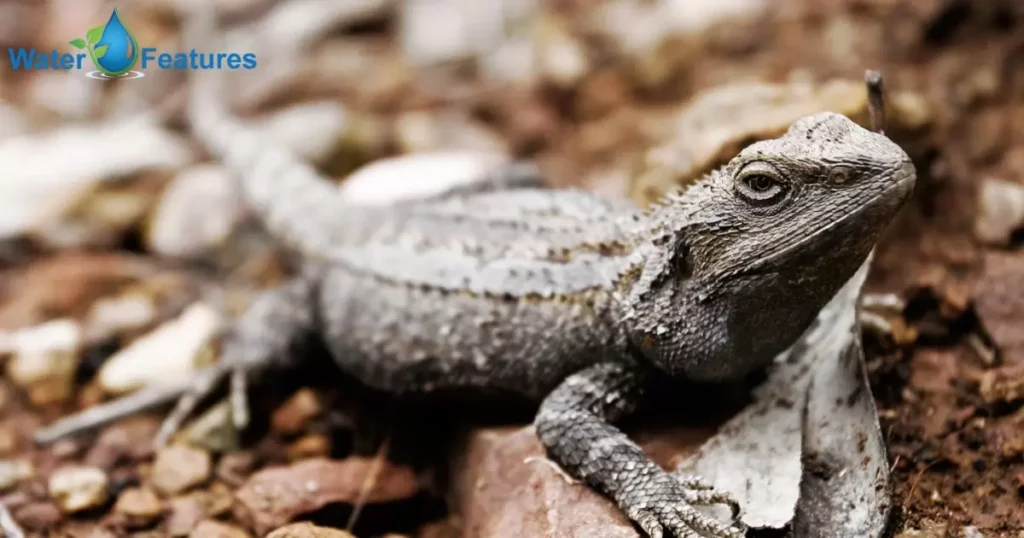
Besides providing clean and safe drinking water, it’s essential to understand the different ways bearded dragons hydrate themselves:
Drinking
Bearded dragons will often lap up water from shallow dishes or containers. Make sure the water source is clean and at the right temperature to encourage them to drink.
Bathing
Bearded dragons may also absorb water through their skin during baths. Regular baths in lukewarm water can help maintain proper hydration and assist with shedding.
Moist Foods
Many bearded dragons obtain a significant portion of their hydration from the moisture content of their food. Providing a variety of fresh vegetables and fruits can contribute to their water intake.
Misting
Occasionally misting your bearded dragon’s enclosure can help maintain proper humidity levels and provide them with an opportunity to drink droplets from their surroundings.
Conclusion
In conclusion, the question of whether bearded dragons can drink tap water depends on various factors, including the quality of your local tap water. While some tap water may be suitable with proper treatment or filtration, it’s essential to be cautious and consider the potential risks associated with using untreated tap water. To ensure the health and well-being of your pet bearded dragon, it’s advisable to take steps to provide clean and safe water.
This may include using dechlorination, filtration, or exploring alternative water sources like bottled spring water or rainwater. Regular monitoring of your bearded dragon’s hydration and health is essential, as their needs may vary based on their age, size, and environmental conditions.
